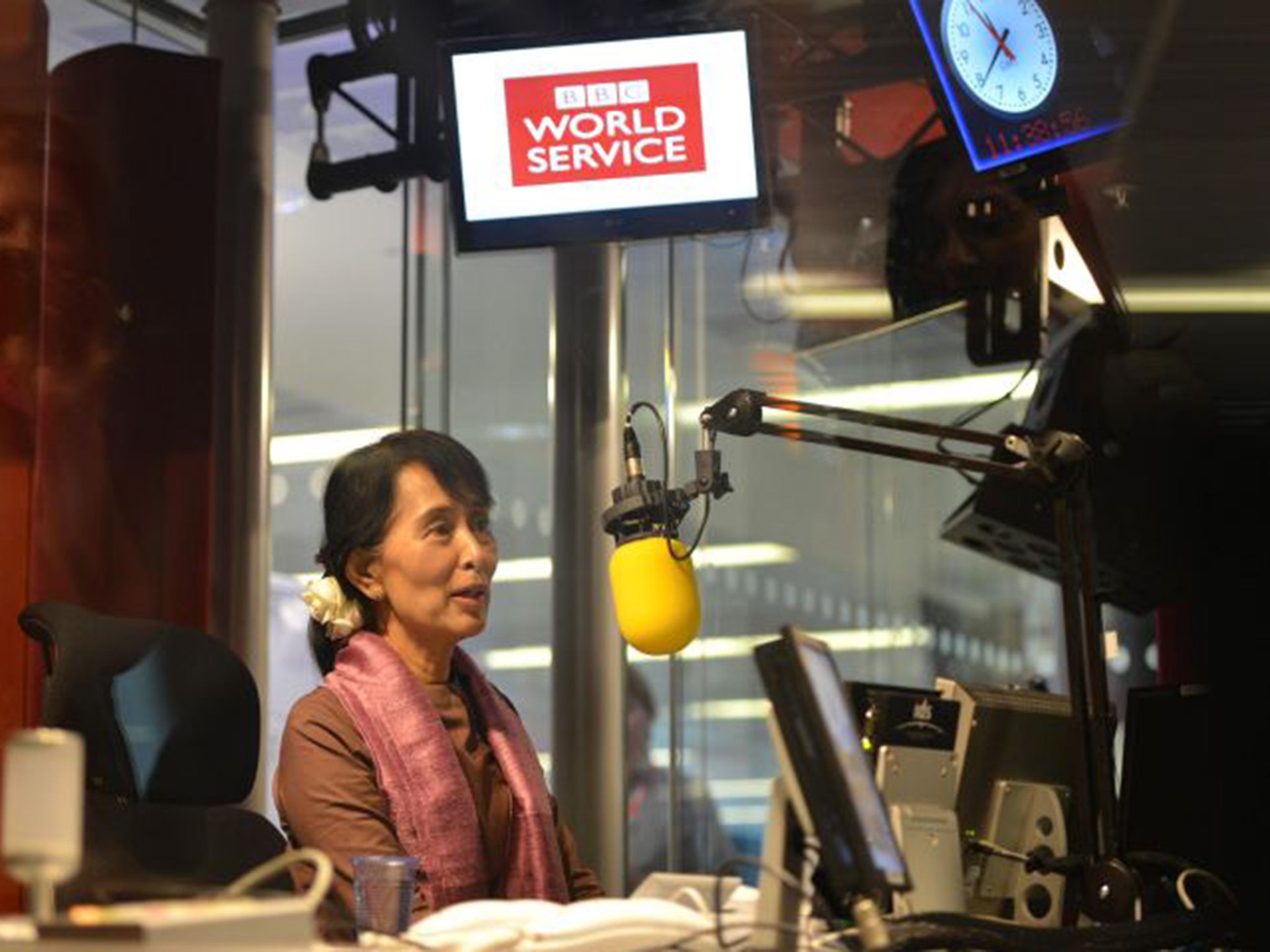Government invests £85m in BBC World Service in soft power U-turn
Lord Hall, the BBC Director-General, welcomed what he described as “the single biggest increase in the World Service budget ever committed by any government

Your support helps us to tell the story
From reproductive rights to climate change to Big Tech, The Independent is on the ground when the story is developing. Whether it's investigating the financials of Elon Musk's pro-Trump PAC or producing our latest documentary, 'The A Word', which shines a light on the American women fighting for reproductive rights, we know how important it is to parse out the facts from the messaging.
At such a critical moment in US history, we need reporters on the ground. Your donation allows us to keep sending journalists to speak to both sides of the story.
The Independent is trusted by Americans across the entire political spectrum. And unlike many other quality news outlets, we choose not to lock Americans out of our reporting and analysis with paywalls. We believe quality journalism should be available to everyone, paid for by those who can afford it.
Your support makes all the difference.The Government has acknowledged the importance of “soft power” in global politics with an unprecedented £85m investment in the BBC World Service to support initiatives in Russia, North Korea, the Middle East and Africa.
Lord Hall, the BBC Director-General, welcomed what he described as “the single biggest increase in the World Service budget ever committed by any government.”
Much of the money comes from the Official Development Assistance (ODA) aid budget and the investment represents something of a U-turn by Government, which transferred funding responsibility for the World Service from the Foreign Office to the BBC in 2014. The money was announced as part of the Government’s National Security Strategy and Strategic Defence and Security Review 2015.
But in recent months Russia and China, in particular, have been investing huge sums in state-sponsored news networks.
The new money will be spent on projects including enhanced digital and TV services for Russian speakers, new radio services for audiences in North Korea, and radio and digital services for Ethiopia and Eritrea. Funds will also be allocated to a dedicated TV output for Somalia and a fully digital service for Thailand. Improvements will also be made to the BBC Arabic Service.
“The World Service is one of the UK’s most important cultural exports and one of our best sources of global influence,” said Lord Hall.
Join our commenting forum
Join thought-provoking conversations, follow other Independent readers and see their replies
Comments